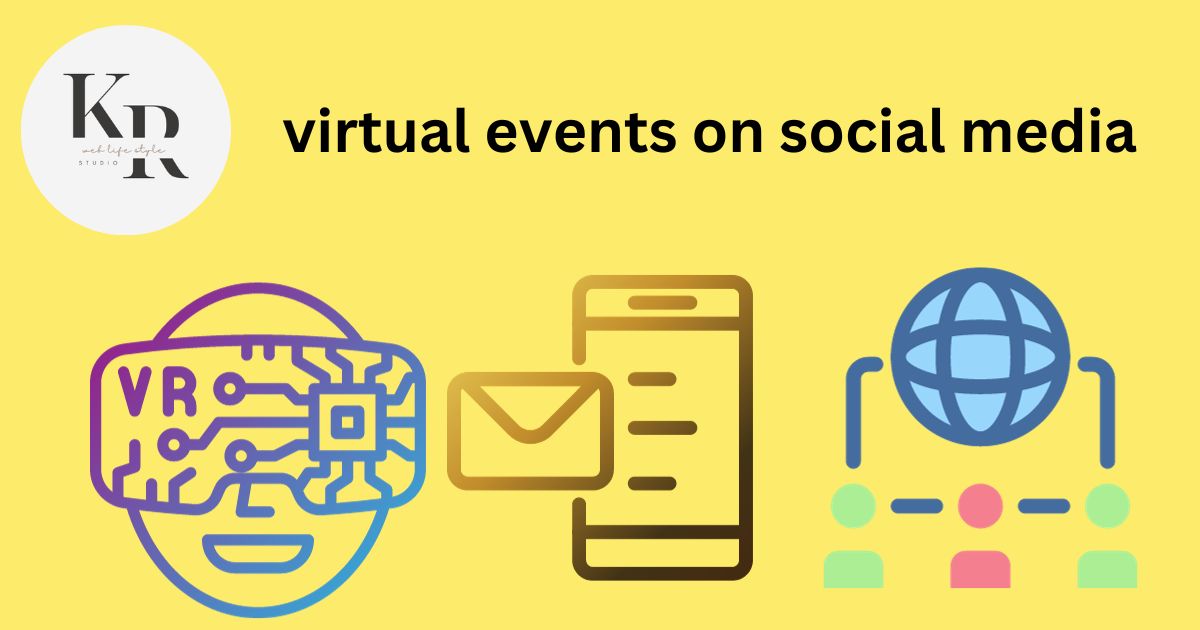Unlocking the Potential: The Future of Virtual Events on Social Media
In recent years, the way we engage, communicate, and experience different events has changed dramatically. The rise of virtual events has redefined and created new opportunities for organizations, attendees, and bands. Social media platforms have provided the ideal space to host these events and enhance engagement. This article explores the power of virtual events on social media and the multitude of benefits they offer.

The Power of Virtual Events
Virtual events have revolutionized the event industry by breaking down geographical barriers and allowing for global participation. These events, conducted entirely online, offer a myriad of advantages compared to traditional physical events. Attendees no longer have to invest time and resources in traveling to a physical venue, and organizers can reach a significantly larger audience.
Why Social Media is the Ideal Platform
Social media platforms have become essential for us in our lifestyle and also important for virtual events due to their wide reach and user-friendly features. Platforms like Facebook, Instagram, and X(Twitter) have billions of users, making them the perfect channels to host all kinds of virtual events.
Enhancing Engagement through Interactive Features
One of the key advantages of virtual events on social media is the ability to engage through interactive features. These social media platforms provide tools such as live chat, polls, calls, and virtual networking opportunities, enabling participants to actively participate with other attendees. This level of engagement Encourages a sense of community and enhances the overall event experience.
Expanding Reach and Accessibility
Virtual events on social media have the power to reach a global audience, unlike physical events which are limited by capacity and logistics, but virtual events can accommodate an unlimited number of attendees. This allows companies to expand their reach with people from all over the world. virtual events remove geographical constraints, making them highly accessible for individuals who may have difficulty attending physical events due to disabilities or location constraints.
Measuring Success with Advanced Analytics
Another advantage of hosting virtual events on social media is the ability to measure success accurately using advanced analytics. Social media platforms provide organizers with detailed insights into event performance, including metrics like attendee engagement, reach, impressions, and audience demographics. This data enables organizers to tweak their event strategies, evaluate the success of their initiatives, and make data-driven decisions for future events.
Building Strong Connections with Attendees
Virtual gatherings on social media possess the capacity to nurture profound bonds among event coordinators, speakers, and participants. By making effective use of social media platforms, event planners can establish dedicated event pages, online communities, and discussion forums where attendees can come together, exchange perspectives, and cultivate connections. This communal spirit not only enriches the event encounter but also stretches far beyond the event’s confines, creating enduring prospects for ongoing networking and collaborative endeavors. Virtual events on social media have the power to foster meaningful connections between companies, speakers, and attendees.
Harnessing the Power of User-generated Content
Social media platforms develop content created by users, and virtual events can tap into this valuable resource. By encouraging attendees to share their experiences, insights, and photos using event-specific hashtags, organizers can generate excitement about the event and increase its visibility. User-generated content not only serves as useful marketing material but also enhances attendee engagement, fostering a sense of ownership and active participation.
Monetization Opportunities for Organizers
Virtual events on social media offer monetization opportunities for organizers beyond traditional ticket sales. Through partnerships with brands, sponsorships, and advertising, organizers can generate revenue streams. Social media platforms provide avenues for boosted posts, sponsored content, and branded integrations, allowing organizers to monetize their events while maintaining a seamless and engaging experience for attendees.
The Role of Influencers in Virtual Events
Influencers play a vital role in the success of virtual events on social media. Leveraging the reach and influence of social media influencers can significantly amplify event visibility and attract a larger audience. Influencers can be engaged as speakers, brand ambassadors, or event promoters, further enhancing the event’s credibility and driving attendee participation. Collaborating with influencers enables organizers to tap into their established follower base and reach a wider, more targeted audience.
The Future of Virtual Events on Social Media
In today’s rapidly evolving digital landscape, the concept of virtual events on social media has gained unprecedented momentum. The way we connect, engage, and share experiences has undergone a transformation, largely accelerated by the global pandemic. As experts in SEO and high-end copywriting, we are here to explore the profound impact of virtual events on social media and how they are shaping the future of online interactions.
The Virtual Revolution
Defining Virtual Events
Virtual events are like online meetups that try to make you feel like you’re at a real event. These online gatherings can be conferences, webinars, product launches, concerts, or even weddings. What makes them special is that you can interact, engage in real-time, and feel like you’re part of a big group.
The Catalyst of Change
The COVID-19 pandemic has served as a catalyst for the rapid adoption of virtual events. As physical gatherings became restricted, businesses, organizations, and individuals turned to digital platforms to stay connected. This paradigm shift forced a reevaluation of the possibilities and benefits that virtual events offer.
The Advantages of Virtual Events on Social Media
Global Reach and Accessibility
Virtual events can reach people from anywhere through social media. This boosts brand visibility and connects you with a diverse audience that might be challenging to reach in person.
Cost-Efficiency
Hosting physical events can be expensive, from venue rental to catering and logistics. Virtual events significantly reduce these costs, making it an attractive option for businesses of all sizes. The savings can be reallocated to enhance the event’s content, technology, or marketing efforts, resulting in a more impactful experience.
Data-Driven Insights
Virtual events provide a treasure trove of data that can be harnessed to improve future endeavors. From attendee demographics to engagement metrics, social media platforms offer valuable insights that can help refine your strategy. This data-driven approach allows for continuous improvement and a more personalized experience for your audience.
The Future of Virtual Events
Hybrid Experiences
As the world gradually returns to normalcy, the concept of hybrid events is emerging as a powerful trend. These events combine the best of both worlds, offering a physical presence for those who can attend in person while simultaneously catering to a virtual audience. Social media plays a pivotal role in bridging the gap between these two realms, ensuring inclusivity and engagement for all participants.
Enhanced Interactivity
The future of virtual events lies in enhancing interactivity. Social media platforms are continuously introducing features such as live polls, Q&A sessions, and virtual networking opportunities. These features create a dynamic and engaging atmosphere, fostering meaningful connections among attendees.
Immersive Technologies
As technology advances, so do the possibilities for virtual events. Augmented reality (AR) and virtual reality (VR) are poised to revolutionize the way we experience these gatherings. Imagine attending a product launch and being able to explore the product in a virtual showroom from the comfort of your home. Social media will be the driving force behind the integration of these immersive technologies.
How to Leverage Virtual Events on Social Media for Success
Define Your Objectives
Before embarking on a virtual event journey, it’s essential to define your objectives clearly. Whether it’s brand awareness, lead generation, or community building, having a well-defined purpose will guide your strategy and content creation.
Choose the Right Platform
Not all social media platforms are created equal when it comes to hosting virtual events. Consider your target audience and the nature of your event. Are you aiming for a professional audience? LinkedIn and Zoom might be your best bet. Is it a more informal, interactive event? Facebook Live or Instagram Live could be the perfect fit.
Craft Compelling Content
Content is king, even in the realm of virtual events. Your content should be meaningful, engaging, and according to your audience’s needs. Invest in high-quality visuals, guest speakers, and interactive elements that keep participants hooked throughout the event.
Promote Aggressively
To ensure the success of your virtual event, promotion is key. Leverage the power of social media advertising, email marketing, and influencer partnerships to get the word out. Engage with your audience in the lead-up to the event to build excitement and anticipation.
The future of virtual events on social media is brimming with potential. The combination of social media platforms and virtual events offers enhanced engagement, expanded reach, measurable success, and monetization opportunities for organizers. Attendees can participate from anywhere in the world, build connections, and actively engage with event content. As we move forward, virtual events on social media will continue to evolve and shape the way we experience and connect with events. Embracing this trend can unlock new possibilities and revolutionize the event industry. By leveraging the advantages of virtual events and embracing emerging technologies, you can position yourself at the forefront of this transformative trend.
To read more about Virtual events on social media visit
To learn more about social media trends click here






